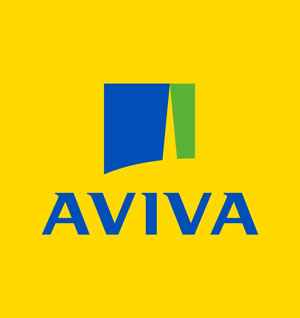
5-Star Auto Liability Insurers
5-Star Awards 2021: Construction Insurance
Auto liability insurance covers losses that a vehicle causes to other people, including injury and death. It also covers damage to other vehicles.
5-Star Excellence Awards
- CNA
- Economical Insurance
- Intact Insurance
- SGI Canada
- Wawanesa Insurance
What is covered under liability car insurance?
If you are at fault in a car accident, auto liability insurance will help to cover the cost of the other driver’s bodily injuries and property damage. Liability car insurance consists of 2 kinds of auto coverage:
Bodily injury liability protection will cover medical expense of the other driver/party, should you be found at fault in an accident. In certain situations, this type of policy will also cover legal fees and lost wages, in the event that the injured party sues you.
Property damage liability protection will cover damages to property from a covered accident where you are at fault. Liability car insurance could cover the other driver’s/party’s car replacement or repair costs, and other property that might have been damaged, like phone poles, structures, and fences.
What is the difference between general liability and auto liability?
The major difference between general liability and auto liability is that general liability is for businesses only. Additionally, businesses do not have to buy auto liability insurance, in the event that they want auto coverage under their general liability policy. Auto liability, on the other hand, is available both to businesses and individuals. Should you be the cause of a car accident, auto liability will protect you against personal financial losses.
Rather than the injured party taking you to court to pursue damages, your auto liability insurance and general liability insurance will act as the payment. Your liability coverage is, however, only as high as the limit that you have chosen. The injured party might still come after you personally for damages if they want more than your policy covers.
Why do truckers need general liability insurance?
More and more risk managers are requiring that for-hire truckers have motor truck general liability insurance, which covers property damage and injuries you may have caused from business activities indirectly related to the operation of your truck. You will likely require trucker’s general liability insurance if you are a for-hire trucker or motor carrier. Some situations where this type of insurance policy would provide coverage include: erroneous delivery of products resulting in damage; libel and slander exposures; actions of a driver while representing the insured and on the premises of others, like truck stops, loading docks, etc.; customers slipping and falling on your premises; and fire on rental property due to insured’s error. You might also need to consider buying motor truck cargo insurance to protect the load you are hauling in the event of theft, collision, or fire.
Motor truck general liability insurance provides coverage for damage to premises rented to you; medical payments; products/completed operations; bodily injury and property damage liability; and personal injury and advertising injury liability.
What does CGL cover?
CGL, or commercial general liability insurance, will protect your company from financial loss if you are liable for personal and advertising injury or property damage caused by your business operations, your services, or your workers. In other words, it provides coverage for non-professional negligent acts. These are a few examples of situations where your company may be responsible for paying for costs, like legal and medical expenses, and punitive and compensatory damages:
-A customer trips on loose flooring and is injured while visiting your business.
-A worker in your construction or painting business causes substantial damage to a customer’s home after accidentally leaving the water running.
-A class-action lawsuit alleges that your business’s advertisements constituted misleading information.
Typically, a CGL insurance policy will cover your legal defense costs and pay all damages on your behalf, should you be found liable (up to the limits of the policy). Due to the negative impacts that a lawsuit can have on your business, and because liability lawsuits occur so frequently, CGL coverage is one of the most insurance products out there.
What are 3 types of car insurance?
The 3 primary types of car insurance coverage offered by most auto insurance providers include liability, collision, and comprehensive. Each of these covers has its own range and might include added services. An added distinction between them is the price for each type of coverage.
Liability. This is the minimum coverage that you can have and still be a legally insured driver. Liability protects you, as the driver, should you be found responsible for an accident, or even if you’re held responsible but did not technically cause the accident. This type of coverage medical expenses, damages, lost wages, and other consequences suffered by those who were injured in the accident.
Collision. This type of insurance covers for repairs to your vehicle that are required following a traffic accident, regardless of who is at fault. It will also cover property damage and damages to the vehicle resulting from collision with buildings, trees, etc., and also offers a replacement provision. This means if the auto insurance company declares your car “totalled,” you might be able to obtain a replacement vehicle or down payment for another one.
Comprehensive. With this type of coverage, you could replace the vehicle if it’s stolen or damaged in a natural disaster.
Keep up with the latest news and events
Join our mailing list, it’s free!



